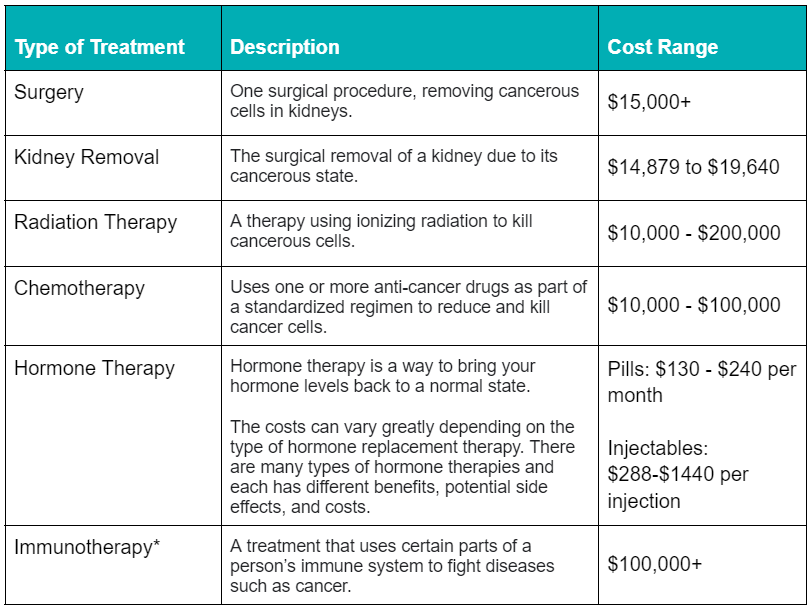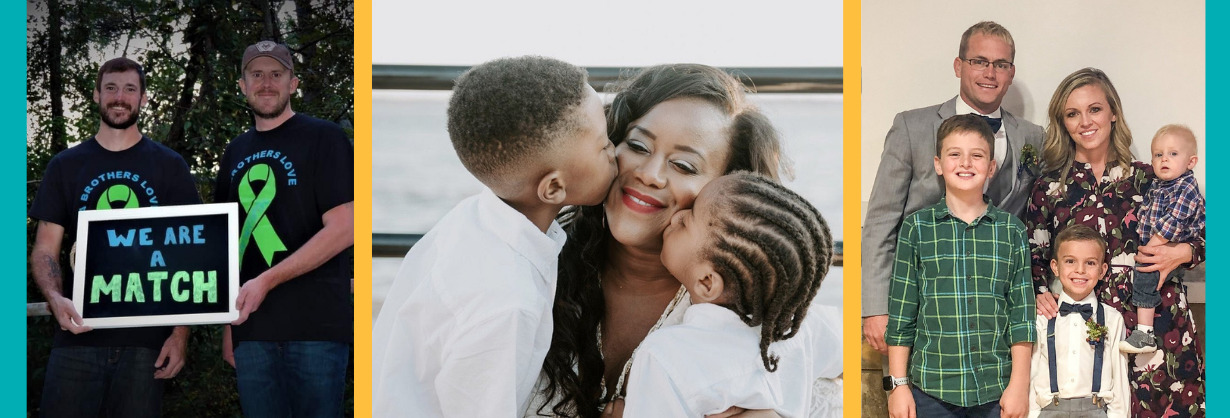
MobilityWorks
Accessibility for all: Helping people connect with who and what matters most
Searching...
No results found. Please try modifying your search.
Out-of-pocket costs for kidney cancer vary depending on your insurance. Trust Help Hope Live for fundraising.
Renal cell carcinoma (RCC) is one of the most common cancers found in adults in the U.S. When they are diagnosed with RCC, patients typically have to live with more than just the symptoms of the illness: they may struggle with the out-of-pocket costs of kidney cancer.
The cost of cancer can go beyond the physical and emotional toll it takes on patients and their families when out-of-pocket costs become overwhelming. Fortunately, kidney care financial assistance is available. Let’s take a deeper dive and see what’s in store for anyone living with this disease and the associated costs.
The average cost for a patient with kidney cancer is $23,489. One study focusing on the economic burden of kidney cancer in the U.S. found that the incremental total healthcare cost per patient was $22,752 for the “initial” phase, $4,860 for the “continuous” phase, and $13,232 for the “late” phase.
Below is a chart breaking down the common treatment options and cost ranges:

*For states I-III, surgery can often cure kidney cancer. However, for advanced cancer (stage IV), immunotherapy may be a stronger treatment option when combined with other therapies. Immunotherapy for kidney cancer is effective for some stage IV cancer patients because it can slow the spread of cancerous cells and, in some cases, even shrink a tumor.
Sometimes, the best option for ridding the kidney of cancer can be a transplant. For more information on kidney transplants and their expenses, check out our kidney transplant financial assistance page.
Depending on your insurance provider and plan, the range of coverage may vary. It is important to discuss this with your provider in order to determine how much additional financial assistance for your kidney cancer treatment will be necessary.
When someone starts dialysis or receives a kidney transplant, they can apply for Medicare. Normally, Medicare is an option only if a patient is over 65 years old. However, there is a special entitlement for people living with kidney failure (ESRD). Medicare pays 80% of the cost of dialysis treatment and 80% of the cost of immunosuppressant medications after transplant.
You pay a hefty deductible for Medicare Part A health insurance when living with end-stage renal disease (ESRD). However, there are many Medicare options out there depending on your economic status.
However, in most cases, it is necessary to consider fundraising. This is always a great source to generate extra funds to pay medical expenses.
When looking at the cost of kidney cancer without insurance, the numbers will add up fast. Fundraising and other financial resources can help patients reduce the financial burden that kidney cancer may create – with or without insurance.
Some of the most common types of out-of-pocket costs for kidney cancer are:
Addressing a kidney cancer diagnosis is filled with many questions that differ for every patient. All the unknowns, procedures, and long-term care needs can add to the stress of battling kidney cancer – and so can the significant out-of-pocket financial burden.
If you need assistance with kidney cancer expenses, our nonprofit is here to help.
As your community-based fundraising source, you can work with Help Hope Live to access greater financial support for kidney cancer treatments. Together, we can raise funds to assist with unmet medical expenses and related costs from living with kidney cancer.
Expenses associated with kidney cancer procedures, rehabilitation and therapy, and long-term health care will vary depending on the situation. Regardless of the specifics, the expenses add up quickly for patients and their families. Finding financial support for kidney cancer treatments can be a burden – but Help Hope Live can help.
Help Hope Live is your community-based fundraising source to assist with the unmet medical expenses and related costs resulting from living with kidney cancer.
Fundraising can help with the out-of-pocket cost of kidney cancer. Through community-based fundraising, our nonprofit organization is dedicated to helping you raise funds for the medical expenses associated with surgery or ongoing support for kidney cancer.
Help Hope Live differs from GoFundMe by:
We are a nonprofit organization with more than four decades of fundraising experience and a 4-star Charity Navigator rating.
The fundraising process with our nonprofit starts with a few simple steps:

An annual checkup left Tony and his wife, Maxine, in shock: Tony was living with a cancerous tumor on his liver. Forced to come up with $600 per month in out-of-pocket medication expenses, Tony and Maxine turned to Help Hope Live. They leveraged our medical fundraising support to help Tony fund a liver transplant in 2018.
Joanna McCray became unable to work after she was diagnosed with end-stage renal disease (ESRD). To assist with out-of-pocket costs including medical travel, caregiving, and medications, Joanna turned to Help Hope Live. She received a kidney transplant in 2018 – a milestone she felt would have been far less likely without our nonprofit’s support. Today, she is a proud Help Hope Live ambassador.
In a 2020 survey, clients and their trusted team members chose these five words to describe how our nonprofit makes a difference. 94% of our clients would gladly recommend Help Hope Live as a resource to another patient or family.
If you choose to fundraise with our nonprofit, here’s how the process will look:
1. APPLY for assistance
2. YOU’LL BE PAIRED with a Client Services Coordinator
3. YOUR COORDINATOR will provide you with one-on-one fundraising help, including personalized fundraising materials and guidance on how to rally your community, share your story on social media, reach out to the press, plan in-person or virtual fundraising events, and more.
Need Other Financial Help Options?
For alternatives to fundraising, you can find information on a variety of cancer financial assistance options. Please view our Catastrophic Illness Resource Directory for insight into sources of direct financial aid, support groups, and other resources for cancer patients and their families.